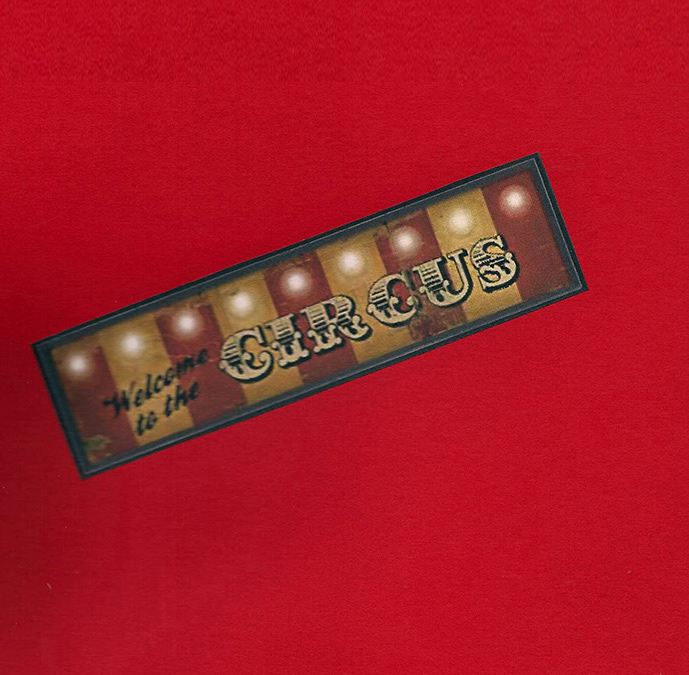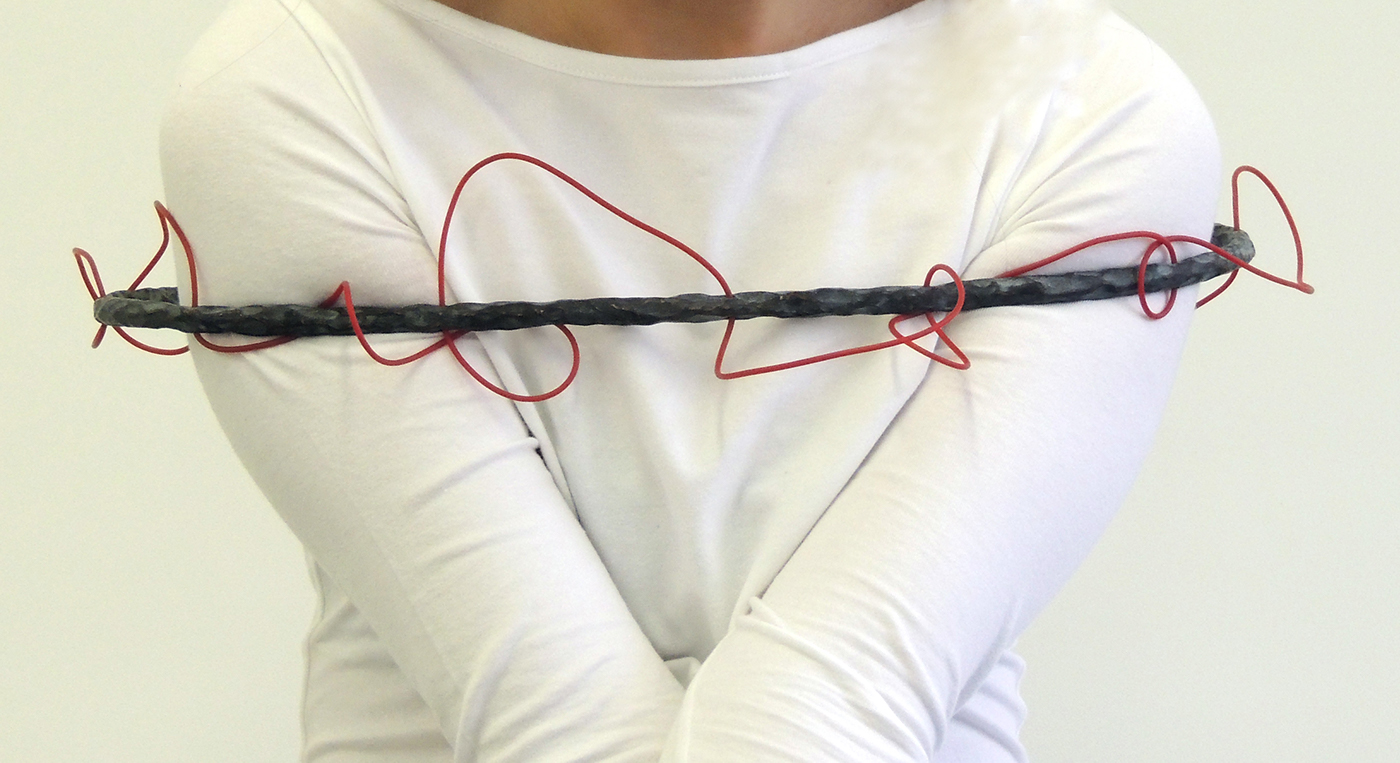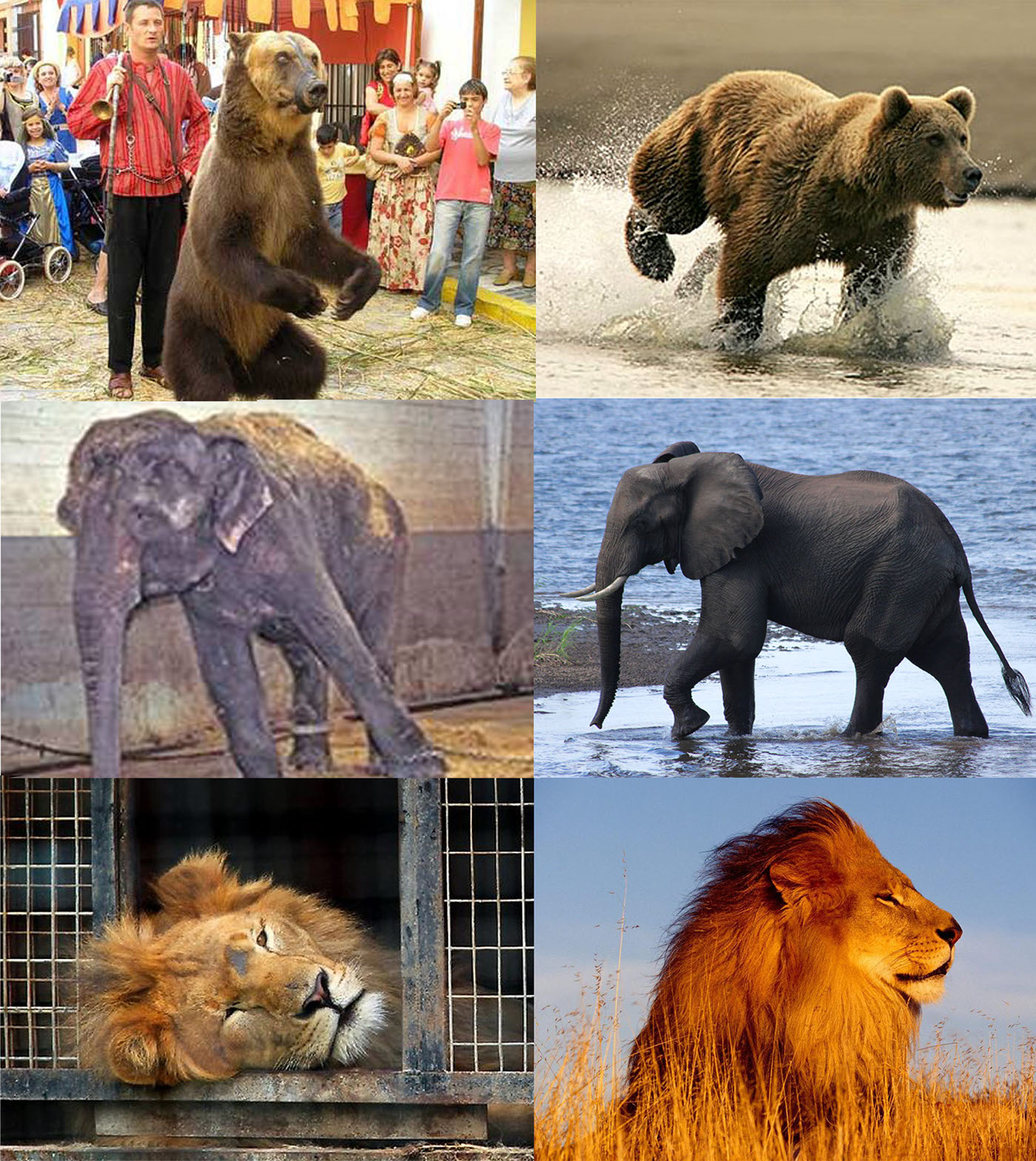This body of work discusses the projection of the human instinct for domination on animals through their use in circus as 'entertainment'.
Once the piece is worn, it creates to the wearer a feeling of restriction.
The metallic element on the back is informed by the oppressive tools that 'trainers' use in order to force animals to obey. When the wearer moves, this piece knocks on their back, reminding them of the conditions that animals sustain in circus.
The red cord symbolizes the 'entertainment' which the animals are supposed to offer to the audience through fancy costumes and tricks out of their natural routine.
The knots are the key point of the piece because if one unties them, the piece will disconnect... the whole system of the 'entertainment' will collapse and the subject of abuse will be released.










Excerpt from the poem “Moonlight Sonata”by Yannis Ritsos
The translation by Peter Green and Beverly Bardsley in The Fourth Dimension (London: Anvil Press Poetry, 1993)
(...)
The translation by Peter Green and Beverly Bardsley in The Fourth Dimension (London: Anvil Press Poetry, 1993)
(...)
At times, when evening descends, I have the feeling
that outside the window the bear-keeper is going by with his old heavy she-bear,
her fur full of burrs and thorns,
stirring dust in the neighborhood street
a desolate cloud of dust that censes the dusk,
and the children have gone home for supper and aren’t allowed outdoors again,
even though behind the walls they divine the old bear’s passing –
and the tired bear passes in the wisdom of her solitude, not knowing wherefore and why –
she’s grown heavy, can no longer dance on her hind legs,
can’t wear her lace cap to amuse the children, the idlers, the importunate,
and all she wants is to lie down on the ground
letting them trample on her belly, playing thus her final game,
showing her dreadful power for resignation,
her indifference to the interest of others, to the rings in her lips, the compulsion of her teeth,
her indifference to pain and to life
with the sure complicity of death – even a slow death –
her final indifference to death with the continuity and knowledge of life
which transcends her enslavement with knowledge and with action.
But who can play this game to the end?
And the bear gets up again and moves on
obedient to her leash, her rings, her teeth,
smiling with torn lips at the pennies the beautiful and unsuspecting children toss
(beautiful precisely because unsuspecting)
and saying thank you. Because bears that have grown old
can say only one thing: thank you; thank you.
(...)
that outside the window the bear-keeper is going by with his old heavy she-bear,
her fur full of burrs and thorns,
stirring dust in the neighborhood street
a desolate cloud of dust that censes the dusk,
and the children have gone home for supper and aren’t allowed outdoors again,
even though behind the walls they divine the old bear’s passing –
and the tired bear passes in the wisdom of her solitude, not knowing wherefore and why –
she’s grown heavy, can no longer dance on her hind legs,
can’t wear her lace cap to amuse the children, the idlers, the importunate,
and all she wants is to lie down on the ground
letting them trample on her belly, playing thus her final game,
showing her dreadful power for resignation,
her indifference to the interest of others, to the rings in her lips, the compulsion of her teeth,
her indifference to pain and to life
with the sure complicity of death – even a slow death –
her final indifference to death with the continuity and knowledge of life
which transcends her enslavement with knowledge and with action.
But who can play this game to the end?
And the bear gets up again and moves on
obedient to her leash, her rings, her teeth,
smiling with torn lips at the pennies the beautiful and unsuspecting children toss
(beautiful precisely because unsuspecting)
and saying thank you. Because bears that have grown old
can say only one thing: thank you; thank you.
(...)


